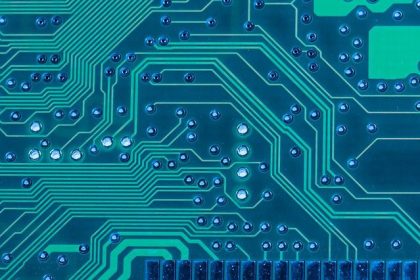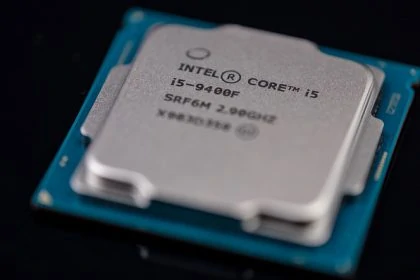In the proceedings concerning abusive competition with chipsets, the EU Commission demanded numerous disclosures from Qualcomm over a period of years. The chip manufacturer sued, mainly because the information was not necessary. Today, the ECJ ruled.

In competition abuse proceedings, the accused is usually requested by a decision of the EU Commission to provide information regarding the suspicions. There is usually a lengthy exchange between the accused company and the EU Commission.
Obviously, the more information the EU Commission receives, the better questions it can ask. So is the EU Commission allowed to ask for further information if the Statement of Objections has already been sent? Or is the information requested not necessary?
The ECJ ruled today after years of proceedings between Qualcomm and the EU Commission (EU:C:2021:76).
The facts
In a case concerning abusive competition in chipsets, the EU Commission requested numerous exchanges of information from Qualcomm. This exchange dragged on for years, during which the EU Commission came to the preliminary conclusion that Qualcomm had abused its dominant position in the market for UMTS-compliant baseband chipsets; Qualcomm objected.
The EU Commission then requested further information and, in return, determined in the contested decision C (2017) 2258 that Qualcomm Europe was obliged to reply to the information requested by the Commission within the time limit, failing which a periodic penalty payment of EUR 580 000 per day of delay would be imposed, calculated from the date following the expiry of the said deadlines. The time limit for replying was granted – with an extension – until 16 June 2017, by which time Qualcomm actually replied.
Even before that, however, namely on 13 June 2017 and thus before the deadline expired, Qualcomm brought an action against the EU Commission’s decision, citing in particular the excessive length of the entire administrative procedure and the questions which, in its view, were unnecessary and lacked necessity. The contested decision was linked to aspects of the applicants’ replies to requests for information, some of which dated back more than five years, and concerned facts which had occurred ten or more years ago. If the Commission did indeed need the additional information now requested in order to conduct its investigation, the applicants had a legitimate expectation that the Commission would at least obtain such information and clarifications before the Statement of Objections was issued in December 2015, and not in spring 2017. These were therefore not follow-up questions, but new and, moreover, unjustified questions.
But the European Court of First Instance (CFI) did not recognise these objections. The review of the reasonableness of the time limit set in a decision on a request for information was particularly important, the CFI had conceded. However, in view of Qualcomm’s economic size, it could reasonably be assumed that the plaintiffs were in a position to provide a response within the set time limits, the CFI ruled, dismissing Qualcomm’s action.
Qualcomm sued before the ECJ

Qualcomm did not agree with this ruling and ultimately took the case to the highest European court (ECJ), which ruled on the matter today. Once again, Qualcomm criticised the necessity and meaningfulness of the requested information. In the course of this exchange, the EU Commission requested information on seven chipset components – instead of the initially requested three chipsets. Above all, however, Qualcomm criticised the Commission for demanding additional data in order to be able to reconstruct the prices actually paid by its customers.
According to Heidelberg Cement v Commission (C-247/14 P, EU:C:2015:694, paragraphs 106 and 107), it follows that only the obligation to provide information may be imposed on the undertaking. However, it was not under an obligation to perform tasks for the EU Commission, e.g. if the Commission compiled a file.
Therefore, Qualcomm accused the CFI of having violated the principles of necessity and proportionality; furthermore, errors of fact had been committed and evidence submitted had been distorted. Today, the ECJ ruled.
Distortion of evidence
The highest ECJ first explained in detail the requirements for proving distortion of evidence (under Article 256 TFEU, Article 58(1) and Article 168(1)(d) of the Rules of Procedure). An appellant alleging distortion of evidence by the General Court must specify exactly what evidence the General Court is alleged to have distorted, the ECJ explained. Moreover, such distortion must be apparent from the documents submitted, without the need for a new assessment of the facts and evidence. While the mere interpretation of a document could also constitute a distortion of evidence, this would only be the case if the court had manifestly exceeded the limits of a reasonable assessment of that evidence.
Distortion of evidence could not be established by the fact that a document could be interpreted differently than by the court, the ECJ clarified, rejecting Qualcomm’s plea in this regard.
Merits and necessity of the information requested
Above all, Qualcomm claimed that the information requested was not justified or necessary. Accordingly, the ECJ looked closely at this allegation.
The court explained that the statement of objections was a preparatory procedural act, was therefore of a provisional nature and was open to change at the time of the subsequent assessment.
It is true that the EU Commission may only request information that may enable it to examine the suspicions of an infringement justifying the conduct of the investigation and stated in the request for information, the highest European court explained. But it is up to the EU Commission to assess whether it needs the information, which follows from its power under Regulation 1/2003, and this provision does not limit the EU Commission’s power to send requests for information after the statement of objections has already been sent, the ECJ clarified.
Consequently, the Court added, the EU Commission is not bound by the factual or legal assessments made in the Statement of Objections – nor is it obliged to explain its assessments or give reasons for how it intends to use the information requested.
Moreover, Qualcomm had sold the chipsets in question in different configurations, so the EU Commission was right to request information in order to establish an appropriate “price-cost” criterion.
Disproportionality of the penalty payment
Finally, Qualcomm claimed disproportionality in the amount of the daily penalty payment, but in vain. The imposition of periodic penalty payments pursuant to Article 24 of Regulation No. 1/2003 consists of two parts, the ECJ explained. With the first decision, a periodic penalty payment is imposed, but without a total amount; therefore, this decision cannot be enforced. Only afterwards, on the basis of a further order issued pursuant to Article 24(2), could the amount of the periodic penalty payment be finally determined. Accordingly, the contested decision of the EU Commission, which fixed a periodic penalty payment per day of delay, had only complied with the first section for the fixing of periodic penalty payments and had therefore not produced any binding legal effects. Therefore, no action for disproportionality could be brought against it; this action was inadmissible.
Incriminating oneself by demanding information
It is a paradox: While the Commission may not impose on the company the obligation to provide information that would force it to admit the alleged infringement, the company cannot evade the request for documents on the grounds that it would incriminate itself if it complied with them. In the present case, however, the request for information had consisted in particular of a request to Qualcomm to produce internal documents, but not to carry out an assessment itself. Qualcomm could therefore not claim (under the 23rd recital of Regulation 1/2003) that it had to incriminate itself by requesting information, the ECJ ruled.
Finally, the ECJ dismissed the action and the appeal of Qualcomm Europe and Qualcomm Inc. in its entirety.
Are you also looking for help in IP law?
Our attorneys have many years of expertise in the entire field of intellectual property – trade marks, designs and patents – as well as in competition law and are entitled to represent you before any court – in Germany and internationally.
Please do not hesitate to contact us if you are interested.

Sources:
Urteil des EuGH Qualcomm vs. EU Kommission, Erforderlichkeit von Auskünften, EU:C:2021:76
Image:
blickpixel | pixabay | CCO License







Leave a Reply